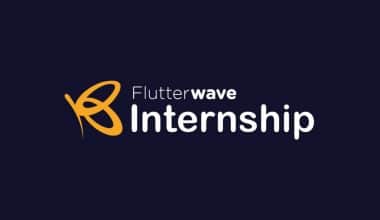Looking for a Low Tuition school in Canada to study, here are low tuition fees universities in Canada that you might need to consider.
Table of contents
About Canada
Canada is one of the civilized and developed nations of the world. Ottawa is its capital city. It is home to its largest city, Toronto, one of the most popular destinations in the world. This country is one of the G7 countries. From World Bank’s latest ranking, this nation falls within the “High Income” economies. Canada has a GNI (Gross National Income) per capita of very much value compared to most countries of the world. The currency of Canada is the Canadian dollar (CAD$).
It is situated in the northern part of the continent of North America. When compared by area, it is the second-largest country in the world. Canada shares a border with the United States of America. The United States surrounds it in the south, the Pacific Ocean in the west, the Atlantic Ocean in the east, and the Arctic Ocean in the north.
Canada is an international destination with an inhabitant of foreigners from all countries of the world. It is a bilingual nation and has its two official languages like English and French respectively.
This is a nation that is highly populated by Christians, a little percentage of Muslims, other minor religions and infidels. It has a vast rich culture that is greatly influenced by the European ways of life, arts, and values. Diverse cultures of various ethnic groups also surround the nation.
The natural environment and resources of Canada are very exquisite. There are various seasons experienced in Canada. These seasons are spring, summer, fall, and winter.
In the international ranking of nations with good and quality education, liberty, low crime rate, security, economic freedom, high standard of living, and low corruption in the government sector, it is one of the highest countries.
Canada is the home for some of the world’s renowned universities. For students who are to study in Canada, they are bound to enjoy its various levels of programs of study ranging from foundation to graduate programs, low cost of living, good government policy on immigration, extra year(s) of stay after completion of a program of study, permanent residency opportunity, scholarship opportunity, work and study opportunity (leveraging from the nation’s good employment and job prospects), technology and innovation, and low tuition fee compared to similar western nations who offer the same quality education.
Having given the above view on why Canada is a good study destination for both local and international students, I know by now many will be interested to choose Canada as their study destination.
Many organizations and institutions rank Canadian schools based on accreditation and license, reputations, and their programs of study. Most of the institutions that rank high in their various lists are expensive compared to those that rank lower.
Although each of the participating organizations has ranking values of schools that differ from each other, below are the precise top ten universities (according to ranking) that have tuition fees less than $10,000 (Remember that some fees are not under tuition):
Top 10 Low Tuition Fee Universities in Canada
1.) University of Prince Edward Island
The University of Prince Edward Island was founded in the year 1969. It is made up of two institutions that were merged together―St. Dunstan’s University (1855) and Prince of Wales College (1860). It has a history of academic excellence dating back to the 19th century. The institution is made up of both local and international students. It is public liberal arts and science institution.
Faculty: Arts, Education, Science, Veterinary Medicine, Business, Nursing.
Undergraduate Courses:
Arts: Acadian Studies, Applied Arts in Journalism, Applied Communication, Leadership, and Culture, Asian Studies, Bachelor of Integrated Studies, Canadian Studies, Classics, Diversity, and Social Justice Studies, Economics, English, Environmental Studies, Fine Arts, History, International Studies, Island Studies, Medieval and Renaissance Studies, Modern Languages, Music, Philosophy, Political Science, Psychology, Religious Studies, Social Studies of Science, Sociology & Anthropology, Theatre Studies.
Education: International Education, Indigenous Education, Adult Education.
Science: Applied Climate Change and Adaptation, Applied Human Sciences, Biology, Biomedical Physics, Biotechnology, Chemistry, Engineering, Environmental Studies, Mathematical and Computational Sciences, Physics, Pre-Veterinary Medicine Stream, Psychology, Radiography, Wildlife Conservation.
Veterinary Medicine: Biomedical Sciences, Companion Animals, Health Management, Pathology, and Microbiology.
Business: Bachelor of Business Administration (BBA), Accelerated Bachelor of Business Administration, Bachelor of Business in Tourism and Hospitality, Bachelor of Business Studies, Public Administration.
Nursing: Bachelor of Science in Nursing, Accelerated Bachelor of Science in Nursing.
Graduate Programs: Executive Master of Business Administration, Master of Nursing (MN), Master of Science (MSc), PhD in Environmental Sciences, PhD in Molecular and Macromolecular Sciences.
Certificate Programs: Certificate in Accounting, Certificate in Business.
Tuition fee: The specific tuition fees can be found at www.upei.ca/finance/accounting/fees
Financial Aids and Scholarship Opportunities: The details of all the available financial aids can be found at University of Prince Edward Island Financial aid and the scholarship opportunities at www.upei.ca/studentlife/scholarships-and-awards
Admission requirements: The admission selection criteria and requirements can be found at University of Prince Edward Island Admission-requirements
Degree: BSc, Bed, MN, EMBA
Housing: School residences and off-campus accommodations.
Location and Contact: University of Prince Edward Island 550 University Avenue, Charlottetown, PE Canada C1A 4P3 (800) 606-8734 website: www.upei.ca
2.) Brandon University
Brandon University was established in the year 1967. Its foundation is made up of different institutions that later gave rise to this present one. The root of the institution can be traced back to the formation of Brandon College in 1889 which was restarted and rebranded after the world war. It evolved from science study to arts, and to research works.
Faculty: Arts, Education, Science, Health Studies, Music.
Undergraduate Courses:
Education
Music
Arts: Anthropology, Business Administration, Classical and Modern Languages, Drama, Economics, English and Creative Writing, Gender and Women’s Studies Program, History, Native Studies, Philosophy, Political Science, Religion, Rural Development, Sociology, Visual and Aboriginal Art.
Science: Applied Disaster and Emergency Studies, Biology, Chemistry, Environmental Science, Geography, Geology, Mathematics and Computer Science, Physics and Astronomy, Psychology.
Health studies: Bachelor of Nursing, Bachelor of Science in Psychiatric Nursing, Bachelor of Science in Mental Health.
Graduate Programs: Master of Psychiatric Nursing, Master in Rural Development, Graduate Diploma in Rural Development, Master of Education, Master of Psychiatric Nursing, Master of Music, Master of Science (Environmental & Life Sciences).
Certificate Programs: Certificate in Business Administration, Certificate in Justice System.
Tuition fee: The specific tuition fees can be found at
Financial Aids and Scholarship Opportunities: The details of all the available financial aids and scholarships can be found at www.brandonu.ca/scholarships/
Admission requirements:
The admission requirements for local students can be found at Brandonu.ca Requirements/ and for international students, the link is at www.brandonu.ca/future-students/apply/international/requirements/
Degree: B.Ed., B.A, B.Mus., BN.
Housing: School residences and off-campus accommodations.
Location and Contact: Brandon University 270-18th Street Brandon, Manitoba R7A 6A9 Canada. Voice: (204) 728-9520 Fax: (204) 726-4573 website: www.brandonu.ca
3.) Canadian Mennonite University
Canadian Mennonite University is founded in the year 2000. Like some other local institutions, it was formed by combining three foundation institutions― Canadian Mennonite Bible College (1947), Concord College (formerly called Mennonite Brethren Bible College, 1944), and Menno Simons College (1988). It runs its academic programs in various settings―both outside its main campus, on the campus of other institutions, and locations as far as the US and Africa. It is a Christian University of Anabaptist origin.
Undergraduate Courses: Biology, Biochemistry, Applied Mathematics, Ecology, Biochemistry, Biblical and Theological Studies, Business, Chemistry, Communications and Media, Counselling Studies, Economics, English, Environmental Studies, Geography, History, Languages, Mathematics, Music, Music Therapy, Peace & Conflict Transformation Studies, Philosophy, Physics, Political Studies, Psychology, Social Service, Sociology.
Graduate Programs: Master of Arts in Peacebuilding and Collaborative Development, Graduate School of Theology and Ministry, The Collaborative Master of Business Administration.
Tuition fee: The specific tuition fees can be found at
Canadian Mennonite University Tuition
Financial Aids and Scholarship Opportunities: The available financial aids and scholarships can be found at Canadian Mennonite University Financial aid.
Admission requirements: The admission requirements for undergraduate entrance is found at Canadian Mennonite University Admission and for graduate entrance at www.cmu.ca/academics.php?s=mba&p=admission
Degree: Bachelor of Arts, Bachelor of Musical Therapy, Bachelor of Music, Bachelor of Business Administration, Master of Business Administration, Master of Arts in Theological Studies.
Housing: On-campus and off-campus.
Location and Contact: North Shaftesbury (Primary Mailing Address): 500 Shaftesbury Blvd. Winnipeg, MB R3P 2N2 Canada
South Shaftesbury: 600 Shaftesbury Blvd. Winnipeg, MB R3P 2N2 Canada
Phone: 204.487.3300 Fax: 204.487.3858 Toll Free: 1.877.231.4570
Website: www.cmu.ca
4.) Wilfrid Laurier University
Wilfrid Laurier University was established in the year 1973. It was named after the 7th Prime Minister of Canada, Sir Wilfrid Laurier. The school has its origin from other institutions that gave rise to it.
The Evangelical Lutheran Seminary of Canada that was founded in 1911 is its first foundation institution. The Waterloo College of Arts (founded in 1925) was the second institution, and the Waterloo Lutheran University (founded in 1960) followed suit; this entire three gave rise to the present WLU.
The school is located in Waterloo, Ontario and has another campus in Brantford and offices within and outside Canada.
Faculty: Arts, Science, Music, Education, School of Business and Economics, Human and Social Sciences, Social Work.
Undergraduate and Graduate programs: Wilfrid University offer so many Bachelor, Master, Doctorate, and Diploma programs found at www.wlu.ca/programs/?filter=faculty%20of%20arts
Tuition fee/ Financial Aids and Scholarship Opportunities: The specific tuition fee, aids, and scholarships can be found at www.wlu.ca/future-students/tuition-finances/index.html
Admission requirements: The admission requirements for undergraduate and graduate programs can be found at Wilfrid Laurier University.
Housing: School residences and off-campus.
Location and Contact: 75 University Avenue West Waterloo, Ontario N2L 3C5 Tel: 519.884.1970 website: www.wlu.ca
5.) University of Winnipeg
The University of Winnipeg is a public university located in Manitoba, Canada, established in 1967. It emerged from the United College (founded in 1938), an institution formed from merging two earlier institutions―Manitoba College and United College.
Faculty: Arts, Science, Business and Economics, Education, Gupta Faculty of Kinesiology and Applied Health.
Programs: The University of Winnipeg offers Undergraduate Programs, Graduate Programs, High School Program, Theology, Professional and Pre-Professional programs which can be found at www.uwinnipeg.ca/academics/programs/index.html
Tuition fee: The School’s tuition fee can be found at www.uwinnipeg.ca/future-student/tuition-fees.html
Financial Aids and Scholarship Opportunities: The School’s available aid and scholarship can be found at www.uwinnipeg.ca/awards/index.html
Admission requirements: The various requirements for admission into the programs offered by Winnipeg University can be found at www.uwinnipeg.ca/future-student/admissions-req.html
Housing: School Residence and off-campus
Location and Contact: 515 Portage Avenue Winnipeg, MB Canada R3B 2E9 Phone: 204.786.7811 website: www.uwinnipeg.ca
6.) Saint Francis Xavier University
Saint Francis Xavier University is a public undergraduate institution that has an affiliation with the Catholic Church. It was founded in the year 1866. Like most other universities, this institution also evolved from an earlier school.
Arichat College was founded earlier in 1853. After the college was moved to the present university’s location (Antigonish), in 1855, it was renamed Saint Francis Xavier College, which now developed to a university level.
Faculty: Arts, Education, Science, Gerald Schwartz School of Business.
Undergraduate and Graduate Programs: Development Studies, Diploma in Adult Education, Earth Sciences, Economics, Engineering, English, Health, History, Human Kinetics, Human Nutrition, Humanities Colloquium, Master of Education, Math & Statistics, Modern Languages, Music, Nursing, PhD in Education, Philosophy, Physics, Political Science, Psychology, Public Policy, and Governance, Religious Studies Social Justice Colloquium, Sociology, Women’s and Gender Studies, Art, Business, Catholic Studies, Celtic Studies, Classical Studies, Anthropology, Bachelor of Education, Adult Education – Masters, Aquatic Resources, Computer Science, Biology, Chemistry, Climate & Environment.
Gerald Schwartz School of Business: Accounting, Enterprise Systems, Entrepreneurship, Finance, International Business, Management and Leadership, Marketing.
Tuition fee: The specific tuition fees for both local and international students can be found at www.stfx.ca/admissions/tuition-fees
Financial Aids and Scholarship Opportunities
The school’s financial support can be found at Stfx.ca and Stfx.ca scholarships for scholarship opportunities.
Admission requirements
The admission requirements for each degree of study can be found at www.stfx.ca/admissions/requirements
Housing: School Residence and Off-campus
Location and Contact: StFX University 5005 Chapel Square Antigonish, Nova Scotia, Canada B2G 2W5 Tell: 1-902-863-3300 website: www.stfx.ca
7.) Saint Mary’s University
Saint Mary’s University is second to the oldest English Speaking Universities in Canada that has its history dated back to 1802. It is affiliated with the Roman Catholic Church. Saint Mary’s College was the institution that gave rise to this University. This is the School with the cheapest tuition fee on the list.
Faculty: Arts, Science, Sobey School of Business.
Undergraduate Courses: Accounting, Anthropology, Asian Studies, Astrophysics, Atlantic Canada Studies, Biology, Chemistry, Chinese Studies, Classics, Computing and Information Systems, Computing Science, Computing Science, and Business Administration, Criminology, Economics, English, Engineering, Entrepreneurship, Environmental Science, Environmental Studies, Film Studies, Finance, French, Forensic Science, General Business Studies, Geography, Geology, German, Global Business Management, History, Human Resource Management, Intercultural Studies, International Development Studies, Irish Studies, Japanese Studies, Linguistics, Management, Marketing, Mathematics, Philosophy, Physics, Political Science, Psychology, Religious Studies, Social Justice and Community Studies, Sociology, Spanish & Latin American Studies.
Graduate Programs:
Arts: M.A. in Atlantic Canada Studies, M.A. in Criminology, M.A. in Geography, M.A. in History, M.A. in International Development Studies, M.A. in Philosophy, M.A. in Theology and Religious Studies, M.A. in Women and Gender Studies, Ph.D. in International Development Studies.
Business: Master of Business Administration, Executive Master of Business Administration, Master of Finance, Master of Applied Economics, Master of Technology Entrepreneurship & Innovation, Master of Management – Co-operatives and Credit Unions, MBA (CPA Stream), Ph.D. in Management.
Science: M.Sc. in Applied Science, M.Sc. in Astronomy, M.Sc. in Applied Psychology – Industrial/Organizational Stream, M.Sc. in Applied Psychology – Forensic Psychology Stream, M.Sc. in Computing & Data Analytics, Ph.D. Applied Science, Ph.D. in Astronomy, Ph.D. Industrial/Organizational Psychology.
Certificate Programs, Diplomas, and other Programs: This can be found at www.smu.ca/academics/academic-programs.html
Tuition fee: The specific tuition fees can be found at www.smu.ca/academics/tuition-fees-other-expenses.html
Financial Aids and Scholarship Opportunities: Bursaries and Scholarships can be found at www.smu.ca/future-students/cs-scholarships-and-awards.html
Admission requirements: The requirements for local students can be found at Saint Mary’s University Admission-Requirements for international students.
Housing: On-campus and Off-campus
Location and Contact: Saint Mary’s University 923 Robie Street Halifax, Nova Scotia, B3H 3C3 Canada Tel: 902-420-5400 website: www.smu.ca
8.) Mount Royal University
Mount Royal University was established in the year 1910. It became a Post-Secondary school that helped prepare students for study in Universities in 1931 and was later re-established as the current institution in 2009. It has Lincoln Park Campus as its main campus and Springbank Campus as the second.
Faculty: Arts, Business and Communication Studies, Continuing Education and Extension, Health, Community and Education, Science and Technology.
Undergraduate Courses: All Mount Royal courses according to faculty can be at Mount Royal University Program.
Certificate Programs, Diplomas, and Others: They can be found at
Mount Royal University Application
Tuition fee: The fees can be found at
Financial Aids and Scholarship Opportunities: They can be found at
Mount Royal University Student Loan and
Mount Royal University Admission
Admission requirements: The School’s admission requirements and resources can be found at www.mtroyal.ca/Admission/AdmissionRequirements/
Housing: School Residence and Off-campus.
Location and Contact: Mount Royal University 4825 Mount Royal Gate SW Calgary, Alberta, Canada T3E 6K6 Tell: 403.440.6111 website: www.mtroyal.ca
9) Cape Breton University
Cape Breton University has its roots from Saint Francis Xavier University. The University College of Cape Breton was established in the year 1982, went through some transformations and was renamed Cape Breton University in 2005.
Faculty: Arts, Social Sciences & Culture, Business, Education, Engineering & Technology, Health & Well-Being, Sciences.
Undergraduate, Graduate and Other Programs: Every of Cape Breton University’s programs can be found at www.cbu.ca/academic-programs/
Tuition fee: The fees for its various programs can be found at www.cbu.ca/come-to-cbu/tuition-finances/tuition-and-fees/
Financial Aids and Scholarship Opportunities: The funding opportunities can be found at www.cbu.ca/come-to-cbu/tuition-finances/scholarships-bursaries/
Admission requirements: The requirements for admission into its various programs can be found at www.cbu.ca/come-to-cbu/admissions/
Housing: School Residence and Off-campus
Location and Contact: Cape Breton University P.O. Box 5300, 1250 Grand Lake Rd. Sydney, Nova Scotia, Canada B1P 6L2 Phone lines: www.cbu.ca/contact-us/ website: www.cbu.ca
10) Brandon University
Brandon University has its origin from a Baptist School (Brandon College) established in the year 1889. It started out as a University in the year 1967. The current location of the institution was founded in the year 1899. It has an affiliation with the University of Manitoba. It was formerly run by the Baptist Church and now a public institution after the school had financing issues. It ranks one of the best through its music school.
Faculty and School:
Arts, Education, Science, Health Studies, School of Music.
Undergraduate Courses and other Programs:
Arts: Anthropology, Business Administration, Classical and Modern Languages, Drama, Economics, English and Creative Writing, Gender and Women’s Studies Program, History, Native Studies, Philosophy, Political Science, Religion, Rural Development, Sociology, Visual and Aboriginal Art.
Education: They can be found at www.brandonu.ca/education/departments/
Science: Applied Disaster and Emergency Studies, Biology, Chemistry, Environmental Science, Geography, Geology, Mathematics and Computer Science, Physics and Astronomy, Psychology.
Health: Indigenous Health Studies Transition (IHST), Bachelor of Nursing (BN), Bachelor of Science in Psychiatric Nursing (BScPN), Bachelor of Science in Mental Health (Post-Diploma) (BScMH).
School of Music: Information on the School of Music can be found at www.brandonu.ca/music/
Graduate Programs: All the Graduate Programs and Studies can be found at www.brandonu.ca/graduate-studies/
Tuition fee: Tuition tables can be accessed at www.brandonu.ca/registration/regular-session/
Scholarship Opportunities: It can be accessed at www.brandonu.ca/scholarships/
Admission requirements: Local and intl. admission requirements can be found at Brandonu.ca and www.brandonu.ca/future-students/apply/international/requirements/
Housing: School Residences and Off-campus
Location and Contact: Brandon University 270 – 18th Street Brandon, Manitoba R7A 6A9
Dean: (204) 727-9701
Assistant: (204) 727-9738
Fax: (204) 727-4072
Email: Gradstudies@brandonu.ca
Website: www.brandonu.ca
International Student Visa Requirements to Study in Canada:
After choosing a school in Canada, one of the things required by the law is a Study Permit. Follow the following Canadian Government webpages for guidance:





